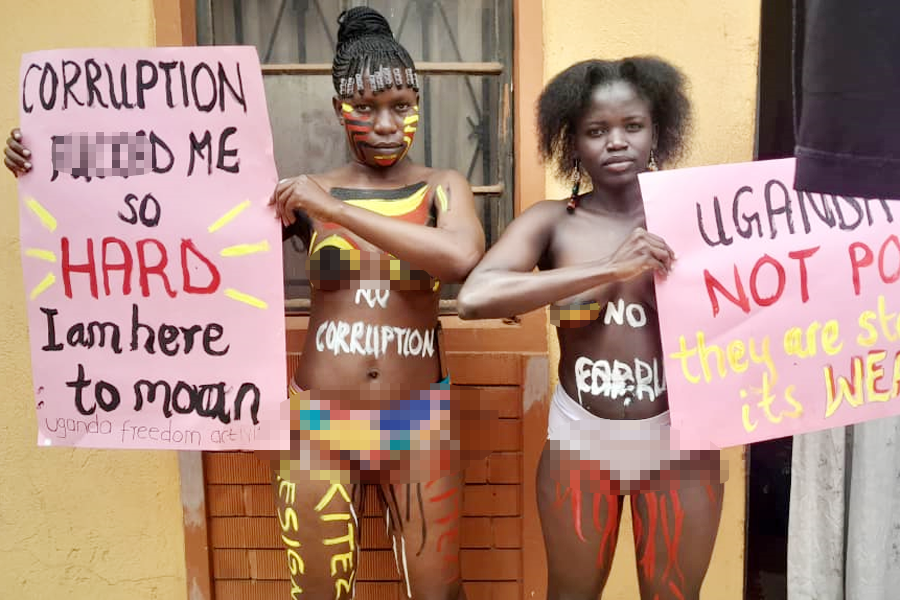Three in Four Ugandans Say Corruption is ‘Severe’

A growing majority of Ugandans believe corruption has reached alarming levels, with 74% describing it as either “very severe” or “extremely severe,” according to a new factsheet by Twaweza based on its 2024 Sauti za Wananchi survey.
Only 11% of respondents consider corruption “not severe,” a sentiment consistent across regions, education levels, and income brackets.
The findings, based on 2,745 respondents polled between June and July 2024, underscore how corruption has cemented itself as a national crisis.
“When three out of four citizens say a problem is either extremely or very severe, we should all sit up and take notice… It is a wake-up call,” said Violet Alinda, Twaweza’s Country Lead for Uganda.
Twaweza is a civil society organisation operating in Uganda, Kenya, and Tanzania that promotes citizen agency, government accountability, and improved delivery of basic services such as education, health, and water.
Established in 2009, it is best known for its flagship initiative Sauti za Wananchi (“Voices of Citizens”), a mobile phone-based survey that captures public opinion on governance and national issues.
Twaweza uses research, public engagement, and advocacy to amplify citizen voices and foster transparency, often working to strengthen civic space and drive reforms through evidence-based insights.
Despite the gravity of the public concern, Ugandans are divided on whether the Government is doing enough.
About 51% say they agree or strongly agree that the Government is taking adequate steps, while 36% disagree or strongly disagree.
Skepticism is highest among wealthier, urban, and more educated citizens.
When asked how corruption should be tackled, most respondents named arrests and prosecution of corrupt officials (29%) or stricter anti-corruption laws (29%) as the top solutions.
Other responses like stronger supervision (7%) and audits (1%) were far less popular.
Twaweza's data also reflect broader concerns about fairness and justice in Uganda. Nearly a third (31%) of respondents disagree that “everyone is equal before the law.”
Forty percent believe courts treat people unfairly, while 43% say the police discriminate based on tribe—sentiments strongest in Greater Kampala.
These perceptions echo institutional findings from the Inspectorate of Government (IGG). In its most recent reports covering July to December 2024 and the full 2023/24 financial year, the IGG revealed:
- 2,377 graft-related complaints received in FY 2023/24
- 1,193 cases sanctioned for investigation
- 1,267 cases concluded, of which 552 were corruption-related
- Shs 30 billion lost to corruption, but fully recovered
Among these were 18 high-profile cases, and a total of 852 corruption-related matters were handled.
Kampala District led the country in reported corruption incidents with 253 cases—over four times the number reported in Wakiso (56) and Mbale (44).
Bribery in Recruitment and Public Trust
Perhaps most striking is the scale of corruption in public sector hiring. The IGG disclosed that Shs78 billion in bribes were solicited for public jobs, primarily in the education and health sectors.
While only Shs29 billion was reportedly paid, some applicants were asked to pay up to Shs50 million to secure jobs.
Between January and June 2024 alone, the IGG concluded 22 high-profile corruption cases and 93 others across ministries, departments, and agencies.
Misappropriation, abuse of office, and embezzlement were the dominant offenses, especially within local governments.
When Twaweza’s public sentiment data is weighed against IGG’s caseload and recovery figures, a complex picture emerges: a population deeply frustrated by corruption but only partially confident in the state’s response.
While state agencies are processing hundreds of cases and recovering billions, many citizens—especially in urban centers—remain unconvinced.
Their strong preference for punitive measures over preventative oversight reflects a deep desire for visible justice.
“Corruption is part of the everyday experience of many citizens,” Alinda noted.
“The question now is whether institutions can match citizen expectations with real reform.”
As both public frustration and state efforts intensify, Uganda faces a critical test: can it bridge the growing trust gap with robust enforcement, stronger transparency, and institutional accountability?
The answer may determine whether the country’s anti-corruption drive gains traction—or falters under the weight of public disillusionment.



0 Comments